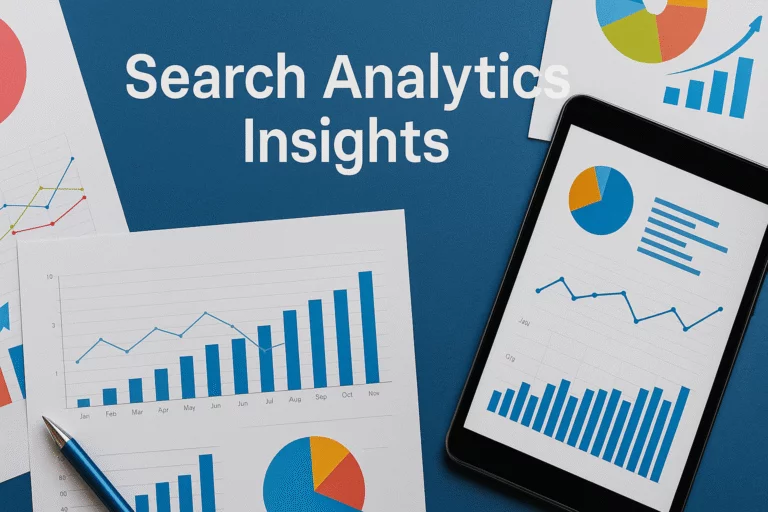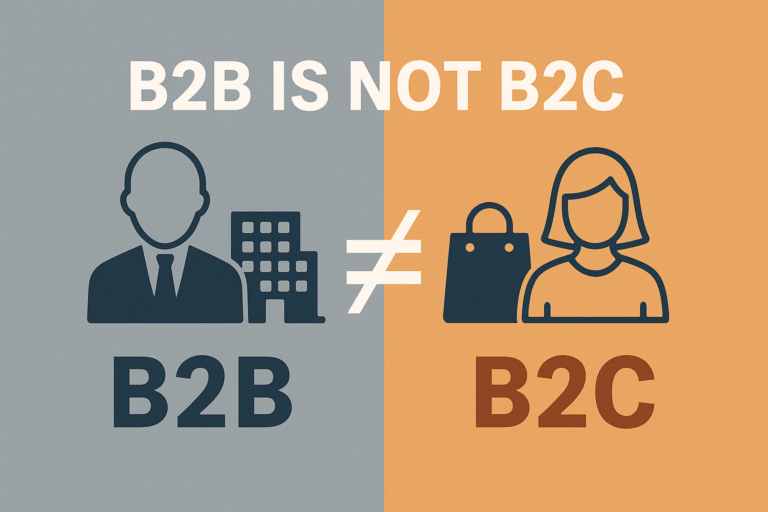Search analytics insights provide a clear window into your customers’ needs and intentions. Every time a user types a query into your site’s search bar, they leave behind valuable data—whether it’s about popular products, rising trends, or unmet expectations. Analyzing these search patterns allows you to improve inventory planning, streamline site navigation, refine content relevance, and ultimately boost conversions.
For instance, if many users are searching for “organic cotton bedsheets” but conversions remain low, it may be time to enhance product descriptions, adjust your merchandising strategy, or add new inventory. Similarly, if you’re seeing a high number of zero-result searches, it’s a signal that shoppers aren’t finding what they need. This can be solved through better synonym matching, typo tolerance, or expanding your product categories. When you integrate search analytics into key areas like UX, inventory management, and marketing, you gain a sharper competitive edge and build stronger trust with your audience.
Search Analytics to Drive eCommerce Success
Discover Popular — and Emerging — Trends
By tracking frequently searched keywords, you gain real-time insight into what customers want. This data enables you to highlight trending products, create timely promotions, and ensure optimal stock levels. It’s also a window into emerging interests—spot growth in search volume early, and you can prepare accordingly.
Identify Product Gaps
Search analytics not only shows what your customers are looking for—it also highlights what they’re not finding. A high number of zero-result searches often indicates missing products or mismatched terminology. To fix this, consider adding the products users are searching for, updating your product taxonomy, or improving keyword mapping so that shoppers can easily find what they need.
Enhance Content and SEO
Incorporating real search terms into your website content—like product titles, descriptions, blog posts, and FAQs—helps align your messaging with the way customers actually search. This improves your on-site search results and boosts your organic SEO rankings. When your content speaks the same language as your audience, it becomes more discoverable, relevant, and engaging.
Reduce Dead-Ends with Smarter Suggestions
When users get no results, smart search platforms can suggest alternatives or related products instead of showing blank pages. This reduces bounce and retains visitors. Analytics helps you understand these patterns and refine result recommendations.
Improve User Experience & Navigation
Search behavior is a goldmine for understanding navigation issues. If users search for “return policy” or “how long is shipping” it shows customers can’t find these details easily. Use these insights to improve navigation labels, site menus, and page layouts.
Optimize Conversion Funnels
Combine search data with sales metrics to evaluate performance. Compare search-to-purchase pathways and measure conversion rates for users who initiated search. Analytics helps uncover friction points—whether users leave after filtering options or abandon carts at checkout.
Forecast Demand & Manage Inventory
Search volume trends help forecast demand more accurately. Knowing which products are gaining interest allows you to predict stock needs and avoid overstocking or stockouts. Timely inventory adjustments reduce cost and improve availability.
Personalize Experiences
You can personalize featured results promotions and on-site recommendations based on frequently searched items. For example, display “Trending Searches” in a widget or surface high-demand products earlier. This creates a more customized, purchase-driven experience.
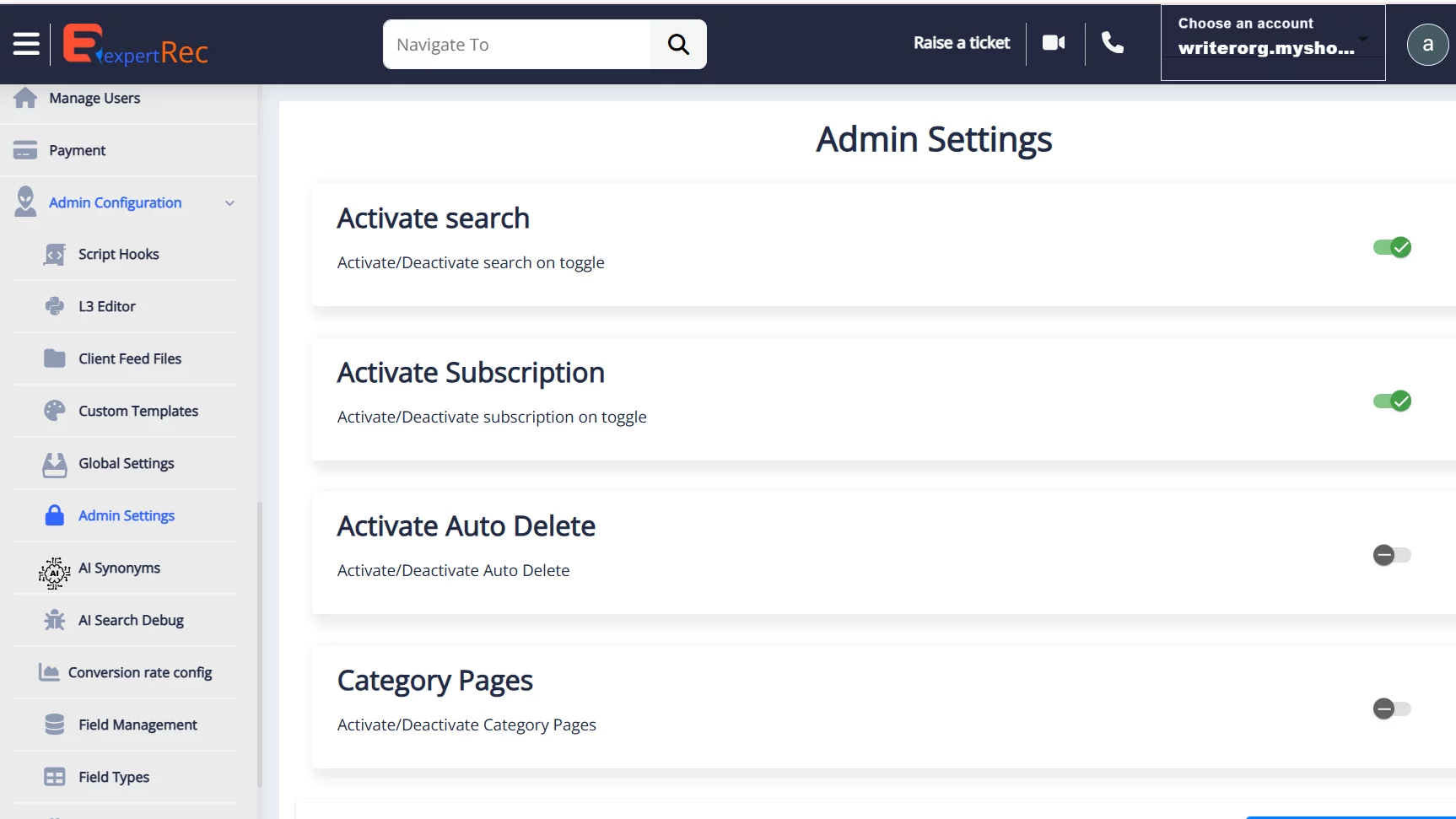
Why ExpertRec Is the Right Choice for Search Analytics
ExpertRec’s analytics dashboard is built specifically for e-commerce search performance tracking. It offers keyword insights—highlighting popular and zero-result searches—plus typo and synonym handling metrics, conversion performance by query, and real-time search behavior trends. All this data is neatly packaged in an easy dashboard.
You can identify intent patterns and tune search relevance, merchandising rules, and content placement without writing code. ExpertRec also integrates with tagging, A/B testing, and merchandising controls so you can experiment with different configurations and measure the impact instantly. With a full suite of search analytics tools, ExpertRec helps you close the gap between visitor intent and outcome—driving smarter merch decisions, fewer dead-ends, and higher conversion rates.
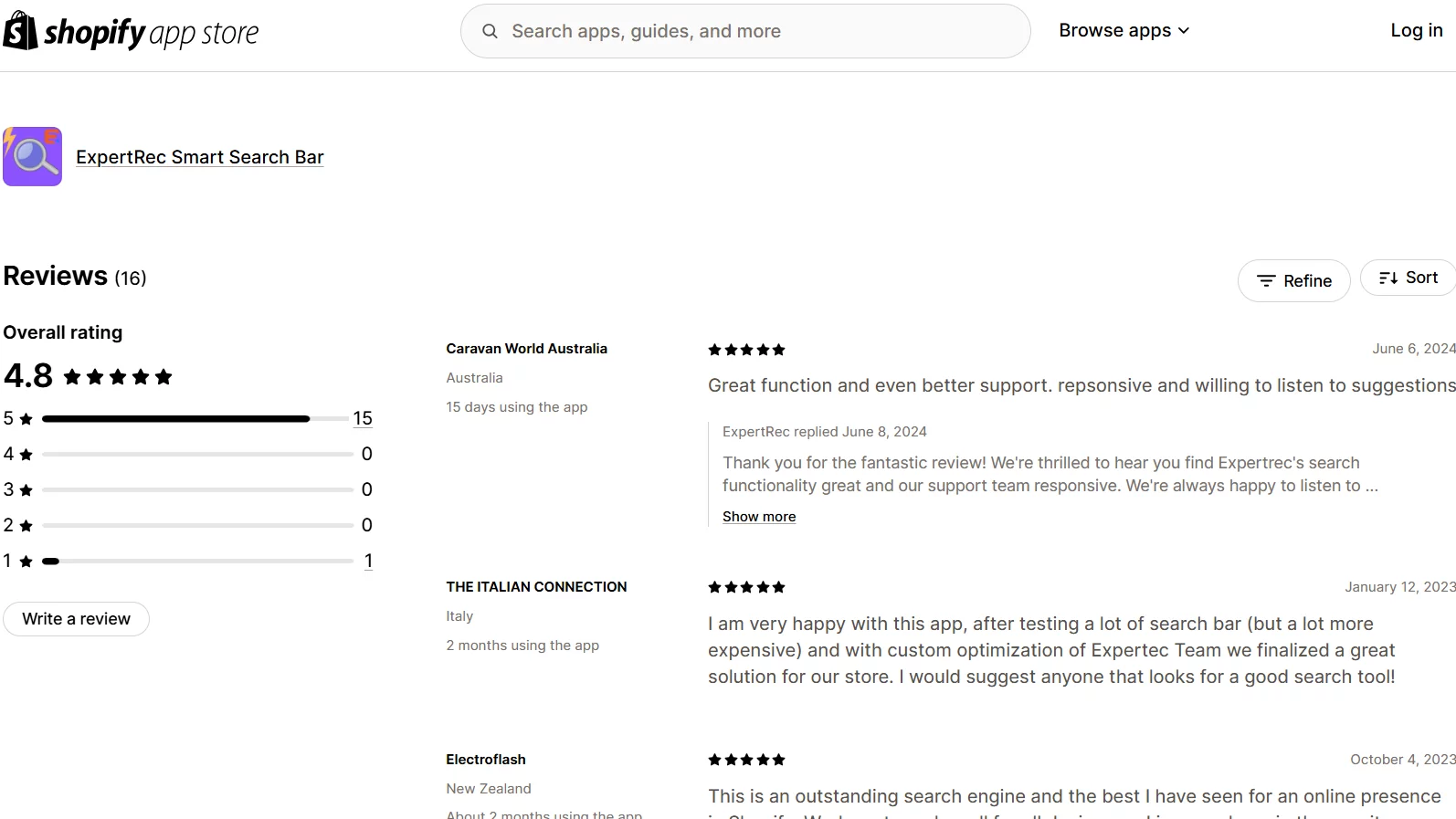
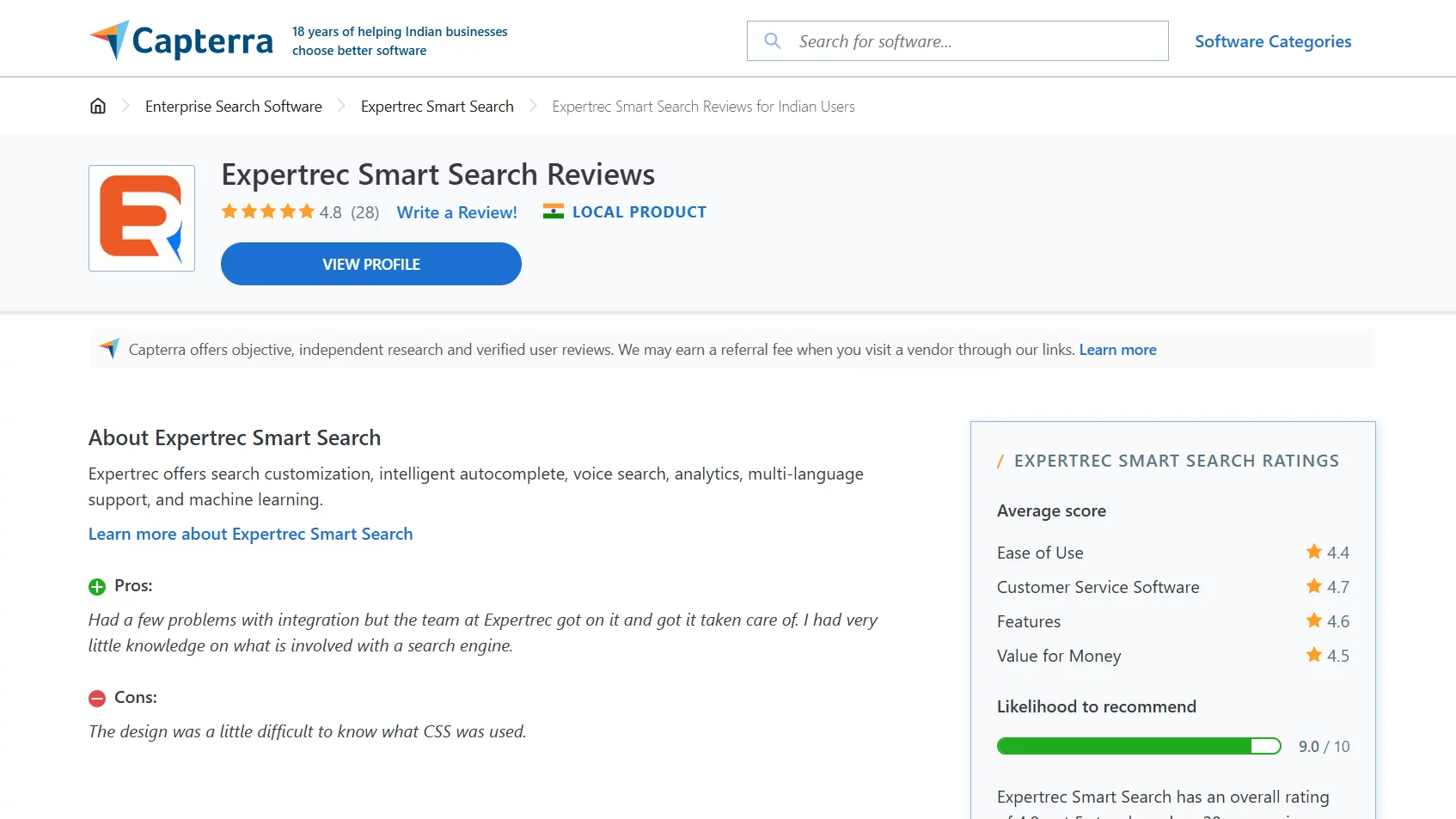
Conclusion
Search analytics insights bridge the gap between what visitors say and what they find. They empower eCommerce teams to uncover demand signals, close inventory or content gaps, improve navigation, and convert more visitors into customers. ExpertRec’s rich analytics platform simplifies this process by delivering robust query insights, translation controls, A/B testing support, and intuitive dashboards—helping businesses transform search into a growth engine, not just a feature.
Frequently Asked Questions (FAQs)
Insights derive from query data like search frequency, zero-result occurrences, click-through vs. bounce rate, and conversion metrics. These show where users are going, where they drop off, and how intent translates into action.
How often should I review search analytics?
Weekly monitoring works best for spotting month-over-month trends. Deeper reviews (monthly/quarterly) help adjust strategies around inventory, content, and merchandising.
Can search analytics help reduce cart abandonment?
Absolutely. Analytics can reveal where users search for checkout terms (“coupon,” “shipping cost”)—if searches occur mid-checkout, that signals friction. Installing inline help or clearer messaging at those moments fixes it.
Should I add synonyms and autocorrect proactively?
Yes—synonym and typo searches often account for 10–20% of search traffic. Analytics lets you spot repeat misspellings or slang and feed them into your synonym database to improve retrieval.
Is search analytics just for large retailers?
No—any size eCommerce business benefits. Smaller catalogs might get quicker gains from direct user intent alignment. And larger catalogs benefit from resolving edge-case queries and advanced personalization.
How does analytics enhance merchandising operations?
Data helps identify popularity peaks and calm periods. Merchandise managers can boost visibility, run promotions, and bundle related products based on real search interest.
Can it be used for marketing strategy too?
Yes—tokenize popular search queries into blog topics or social campaigns. If “eco-friendly yoga mats” is trending, create content and ads around that term—mirroring where user demand already exists.
Is technical expertise required?
Minimal—ExpertRec captures all the data, and its dashboard presents it clearly. You don’t need data engineering or SQL to access and act on insights.
